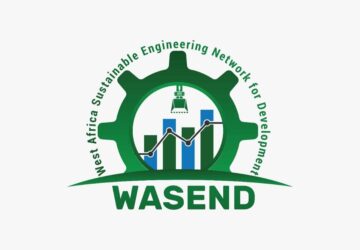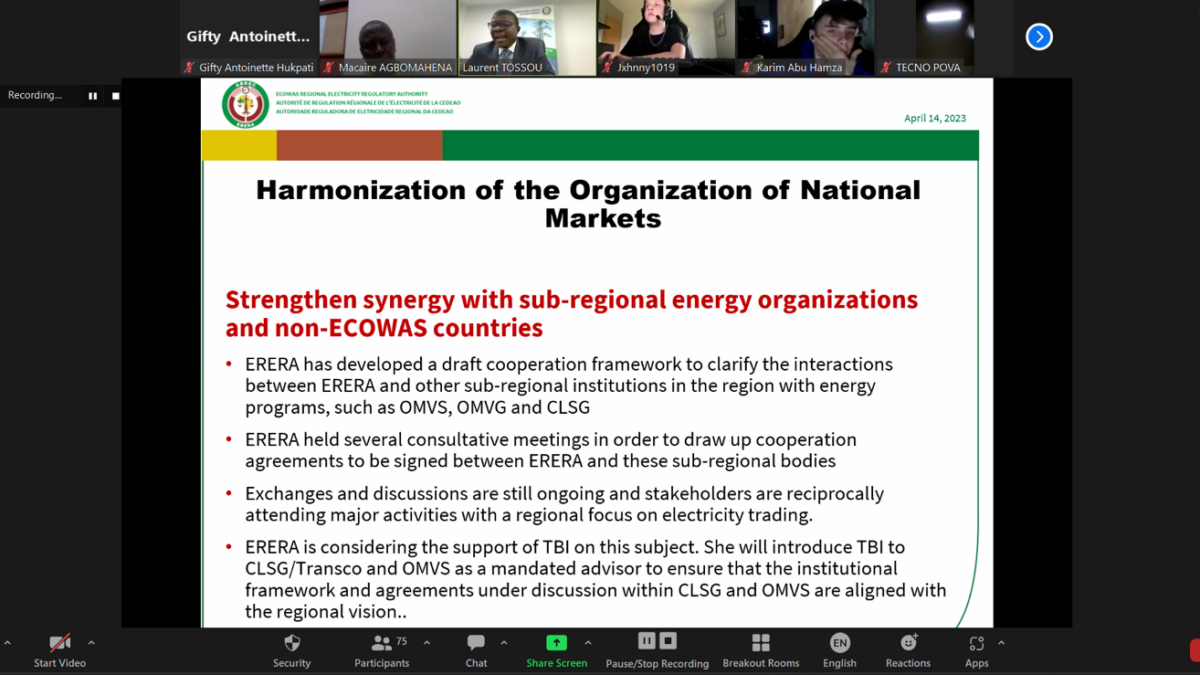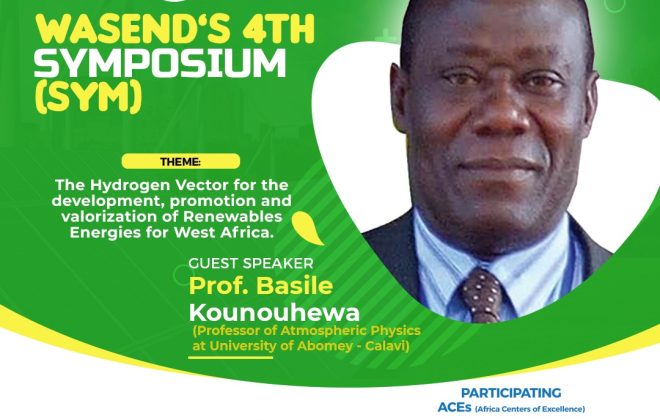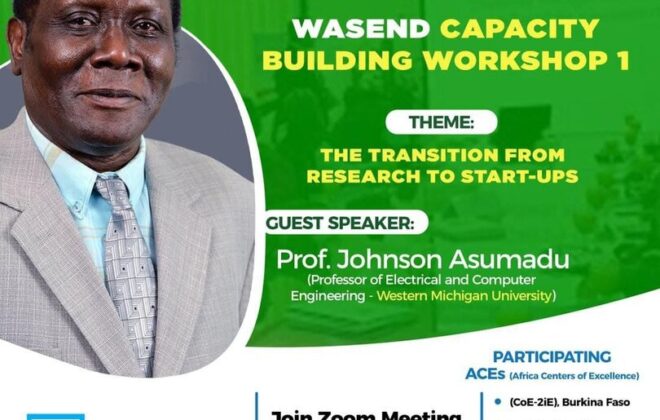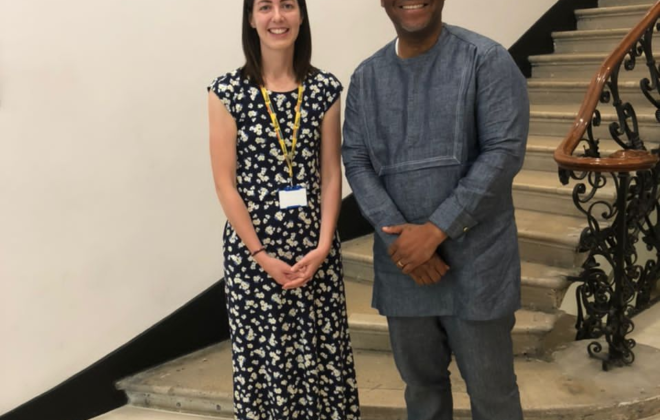ARTICLE ON 5TH WASEND SEMINAR
News
The 5th WASEND Seminar Exposes the Status of Energy Access in Africa.
The 5th West Africa Sustainable Engineering Network for Development (WASEND) seminar was held virtually on the 14th of April, 2023, with the theme “Institutional and Legal Environment for the Development of the West African Electricity Sector”. Ing. Kocou Laurent Tossou, the Head of ECOWAS Regional Electricity Regulatory Authority (ARREC), was the resource person.
In his welcome address, Prof. Jerry John Kponyo, the WASEND Network Coordinator, thanked everyone for participating in the seminar. He mentioned that energy is one of the network’s main focuses, and getting experts to speak on energy access in Africa is a step in the right direction.
He said one of the critical considerations the network needs to make is the legal environment and framework within which energy strives. He expressed gratitude for having an expert speak on the seminar’s theme.
Ing. Kocou Laurent Tossou stated that the electricity market starts with legal and regulatory provisions, and whatever is done must be based on those provisions.
He emphasized the need for resources to be shared and exploited to ensure efficiency in the electricity market. He stated the need for a regional electricity market.
“There is a need for the sub-region to have a harmonized market to ensure efficiency,” he said.
With regards to the ECOWAS energy sector institutions, he mentioned that the first to be established was the West African Gas Pipeline Authority (WAGPA), followed by the West African Power Pool (WAPP) and the ECOWAS Regional Electricity Regulatory Authority (ERERA). He also touched on the legal and institutional framework.
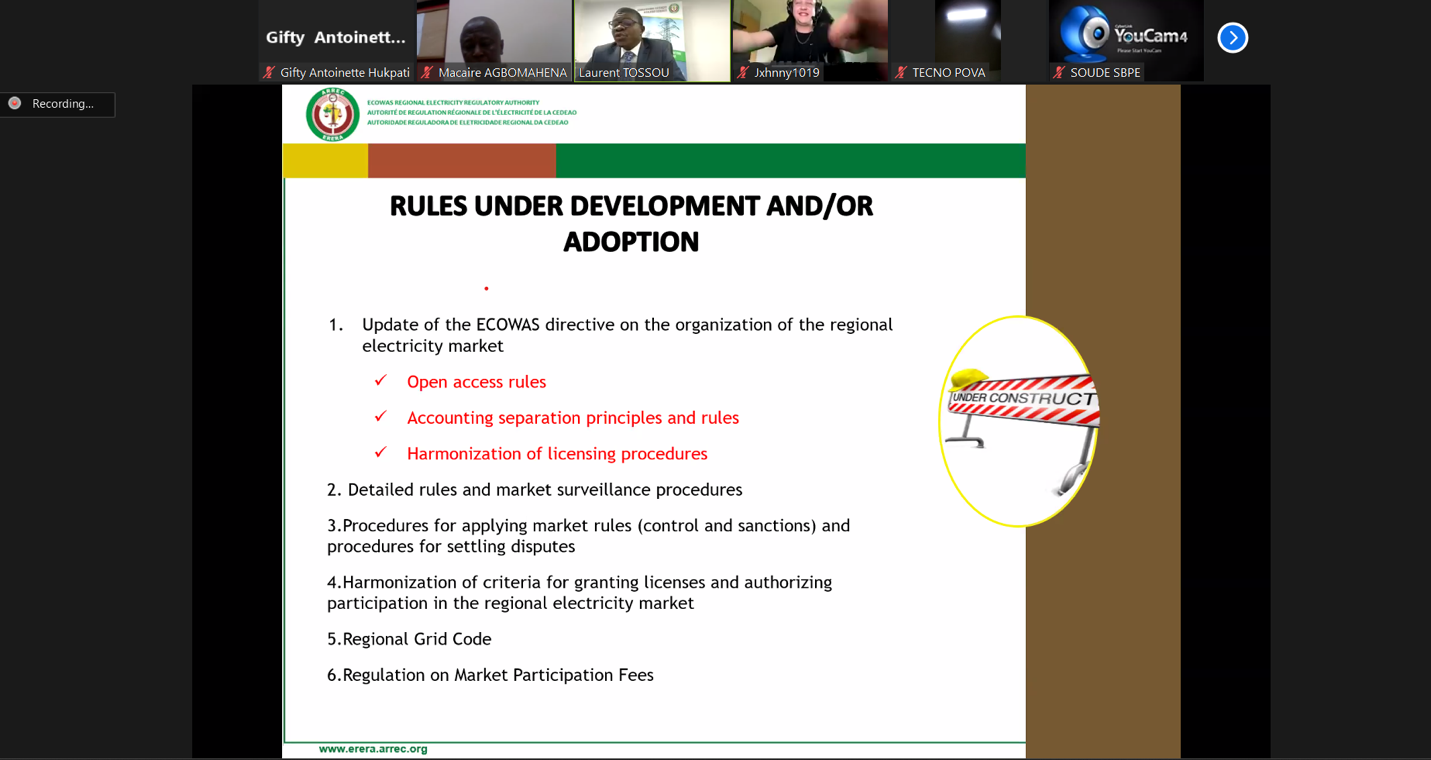
He stated that the regional regulatory body’s functions include, among other things, ensuring the progressive establishment and guarantee of free and open access to the network, defining nondiscriminatory rules of exchange and dispute resolution, ensuring compliance by all stakeholders, harmonizing legislation and operating standards, and promoting and monitoring competition.
He intimated that the regulator’s role is vital in the electricity market in terms of the smooth running of the market.
He emphasized that establishing the regional electricity market aims to create a technological, organizational, legal, and economic framework in which electricity may be sold and bought transparently at a competitive and affordable price for the benefit of the West African population.
Dr. Agbomahena Bienvenu Marcaire, Seminar and Symposium Coordinator, Benin, said WASEND would have to work with institutions like the West African Gas Pipeline, West African Power Pool, the ERERA and ECREE to utilize resources efficiently.
Participants’ questions and discussions were on plans to boost the energy departments of ECOWAS, the ECOWAS body in charge of sanctions and how a country can use its resources efficiently.
Ing. Tossou, in responding to the questions, said the African electricity companies seek to coordinate all of the power pools within Africa to give them harmonization. He added that the overall goal is a single African electricity market.
He mentioned that ERERA is the regional body in charge of sanctions and said there are sanctions and market monitoring directives.
Prof. Jerry John Kponyo, in his closing remarks, expressed his gratitude to the presenter for his outstanding presentation. He said that beyond the interaction with WAPP, there is a concern to take the network to the next level and drive the capacity building and the energy access debate. He thanked everyone for their participation in the seminar.
WASEND is a World Bank-designated African Centers of Excellence (ACEs) network in engineering education and research. The network seeks to leverage the expertise of its members and build synergies to address Sub-regional challenges in energy and digital development.
It is made up of four West African Colleges of Engineering:
-
College of Engineering, Kwame Nkrumah University of Science and Technology (KNUST), Ghana
-
International Institute of Water and Environmental Engineering (2IE), Burkina Faso
-
University of Applied Science, Engineering, and Technology (USET), Gambia
-
College of Engineering, University of Abomey Calavi, Benin

